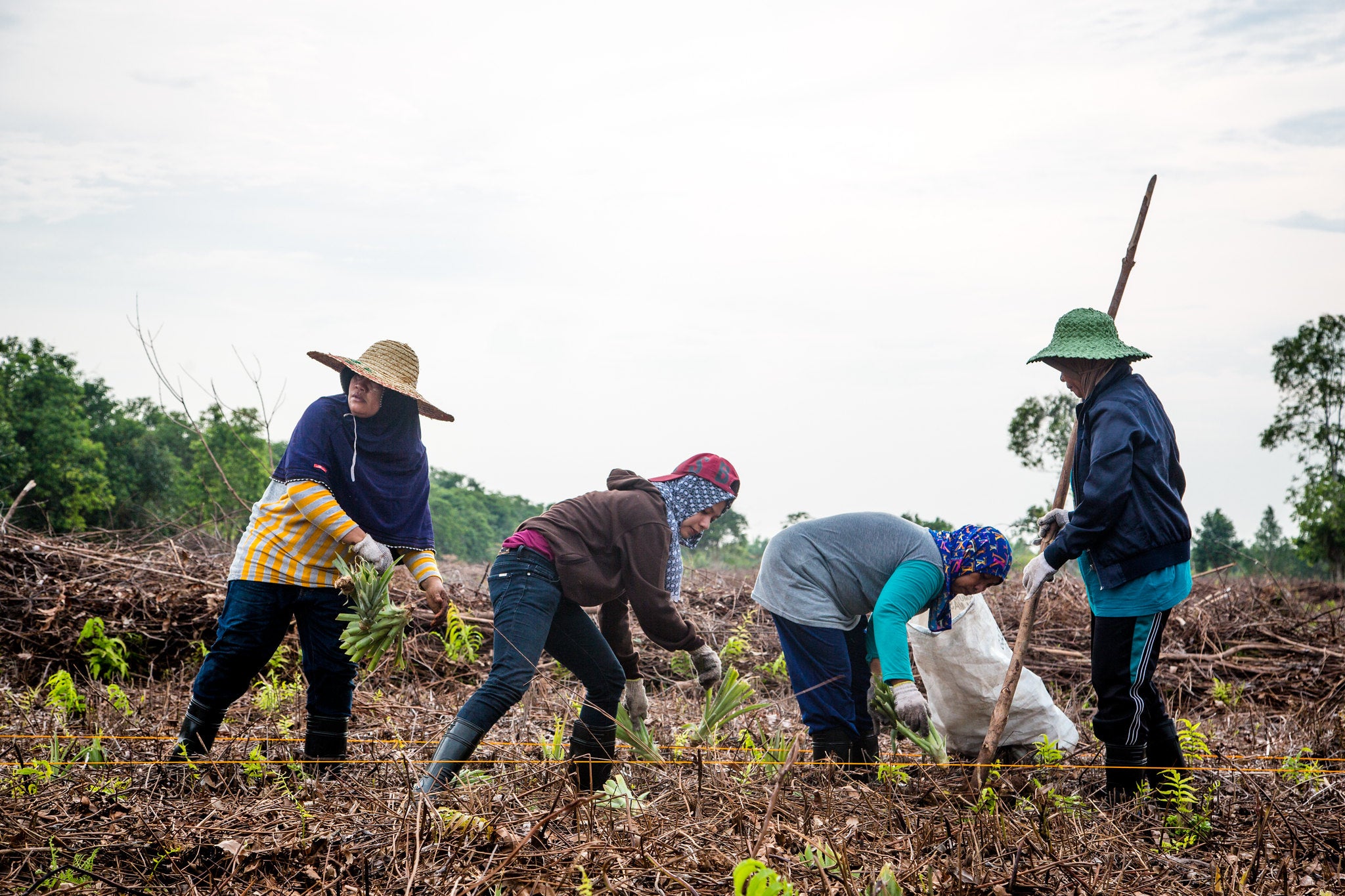Commons

Commons, understood as political spaces for broadly inclusive, informed and equitable environmental decision-making and action, are emerging in the shadows of Indonesia’s peatland development story. These environmental collectives have grown out of the looming crisis of unsustainable development generated by the conversion of around 14.9 million hectares of carbon-rich peat swamp forests into plantations and human settlements. In land-scarce Indonesia, population growth, expanding commodity demands and agricultural modernisation have pushed rural development ever deeper into economically marginal peatlands. The drainage of naturally saturated peat swamp forests for high-yielding palm oil and acacia (pulpwood) monocrops has triggered processes of subsidence and oxidation that are the leading cause of Indonesia’s soil-based carbon emissions. The clearance of partially decomposed peat vegetation by fire is also the main driver of Indonesia’s substantial contributions to transboundary air pollution, known legally and colloquially in Southeast Asia as “haze.”
Peatland commons shadow unsustainable agricultural practices by articulating ameliorative responses to the cumulative social and ecological impacts generated by them. Examples of these commons include multi-stakeholder collaborations engaged in social agroforestry programs using wet agriculture (paludiculture) techniques, fire mitigation strategies to prevent and suppress deep peat fires, and green supply chains around the ethical consumption of sustainable peatland products. Such commons fall into what the late Australian philosopher Val Plumwood termed “shadow places,” referring to “all those places that produce or are affected by the commodities you consume, places consumers don’t know about, don’t want to know about, and in a commodity regime don’t ever need to know about or take responsibility for.” Although Indonesia’s peatland commons comprise a diverse mix of users of peatland resources (smallholders, environmental and peatland (I)NGOs, some state agencies and private plantation companies), they only operate on a small scale and remain marginal to economically profitable but environmentally destructive and socially divisive peatland monocultures.
Despite their peripheral position in Indonesia’s economic development story, peatland commons are important because they represent collectivised efforts to set aside competing resource agendas in the interests of protecting and sustainably commodifying particular common environmental goods through place-based practices. Emily Potter describes the ways in which shadow places function as “externalities of capitalist processes – outside of value.” Yet in Indonesia, the reverse has often occurred as peatland commons have sought to reform rather than resist capital by prioritising more ecologically sustainable and socially inclusive development pathways as a partial solution to the unfolding “tragedy of the commons.” Peatland commons also shadow, or map onto, development’s failures by formulating mitigating responses to the transgressive redistributive effects of growth such as haze pollution, carbon loss and water pollution caused by chemical fertilizers, pesticides and palm oil mill effluent.
In this way, shadow places do not solely encompass forgotten, neglected or marginalised realities, as they can, and sometimes do, constitute regenerative spaces where processes of rehabilitation, adaptation, resilience-building and socioecological justice are actively pursued. As processual geographies, commons are fluid and dynamic shadow places where the meaning of key concepts such as sustainability, conservation and development are continually being negotiated and contested. We see the politicised nature of peatland commons in fire mitigation collaborations that prioritise zero-burning practices at the expense of addressing other underlying causes of biomass wildfires such as inequitable water-sharing arrangements between peatland communities and large plantation companies to augment the power position of the latter in peatland property relations. The current inability of paludiculture-based programs to expand beyond small-scale trial plots is also at least partly due to competing development interests that manifest as bureaucratic delays in issuing social forestry permits and obstacles to funding hydraulic infrastructures required for wet cultivation.
While efforts to establish, operationalise and maintain environmental commons are frequently fraught with asymmetrical power relations, their organising ethos resonates with the Australian indigenous concept of country. The term neidjie, deployed by Plumwood, inscribes a specific set of relationships within shadow-places-as-country that carry a collective onus of responsibility for resources held in common. This idea of communal ownership extends to encompass shadow “places that take our pollution and dangerous waste,” rather than simply treating them as “the ultimate remoteness, put-it-somewhere-else-machine.” Peatland commons have grown out of broad-based recognition that people’s lives and livelihoods are intertwined in the face of haze-forming wildfires and carbon emissions. Redress for these recurring region-wide problems requires multi-stakeholder efforts to collaboratively address the challenges posed by ecological interconnectivity and to choreograph more ecologically sustainable and socially inclusive development outcomes.
Such cooperation is never easy to obtain. Environmental commons encompass diverse resource users with opposing worldviews, belief systems and different organisational levels of vested interests. Yet it has never been more important to nurture these spaces for collectivised action and to integrate them into formal governance regimes. Regulatory mechanisms are needed to enforce rather than simply encourage fairer forms of resource access and the equitable distribution of environmental costs. It is important that peatland commons be brought out of the shadows and into the public domain because development pressures that push ecologies outside known historical ranges and force changes in placebased livelihoods are too complex to be addressed by individual jurisdictions, sectors or property regimes.
This article first appeared in An A to Z of Shadow Places Concepts (2020).






